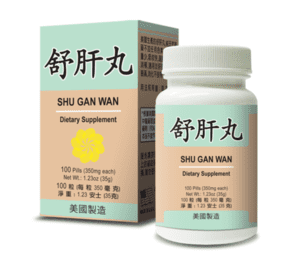Your cart is currently empty!
Yu Jin
English Name: (wild) curcuma tuber, (wild) turmeric tuber
Pharmaceutical Name: Radix Curcumae
Medica Category: Blood-Invigorating and Stasis-Removing Herbs
Properties: Yu Jin enters Heart, Liver, and Gallbladder channels; it is acrid and bitter in nature and cold in temperature.
What is Yu Jin?:
The Chinese Herb Yu Jin is the dried tuber of wild turmeric (Curcuma aromatica Salisb.; and 3 others), a plant in the zingiberaceae (ginger) family that grows in Zhejiang, Sichuan, Guangxi provinces in China. The tubers are collected in the late autumn/early winter after the leaves and stems have withered. Then they are dried, sliced and left unprocessed or vinegar-fried for use as medicine.
Traditional Chinese Medicine (TCM) Therapeutic Actions of Yu Jin:
Yu JIn activates qi and blood circulation and is best used to address hypochondriac pain and abdominal masses with stagnation in the Liver channel at its root. In this action it is also uses to treat cirrhosis of the liver as well as enlargement of the liver and spleen.
Yu Jin regulates Liver qi and blood stagnation which is denoting dysregulation in the ren (conception) and chong (thoroughfare) channels by the clinical presentations of amenorrhea and dysmenorrhea (often accompanied by pain).
Yu Jin clears heat and cools the blood to treat various bleeding disorders caused by blood heat such as epistaxis, hematuria, and hematemesis.
Yu Jin enters the Heart channel to clear heat and phlegm and open the orifices to calm disturbed shen (spirit). In TCM, shen disturbance can manifest as anxiety, palpations, disorientation, seizures, and convulsions. Severe cases of shen disturbance are also called “phlegm misting the orifices”, which can look like epilepsy, mania, delusions, or loss of consciousness. Yu Jin is used in formula to help address these conditions as they are not only “in the mind” but also rooted in the body (according to this disease theory).
Yu Jin clears damp-heat from the Liver and Gallbladder channels and can be used to treat damp-heat jaundice and gallstones.
–safety notes:
Use with caution during pregnancy.
Contraindicated if there is no qi and blood stagnation.
Yu Jin should be used with caution in persons taking anticoagulant medications (e.g. warfarin (Coumadin) and enoxaparin (Lovenox)) and antiplatelet medications (e.g. aspirin, dipyridamole (Persantine), and clopidogrel (Plavix)) as it may combine with these medications to have additive or synergistic effects. Note that this potential interaction of Yu Jin and these medications has not been documented; nevertheless, it is prudent to be aware of its possibility.


